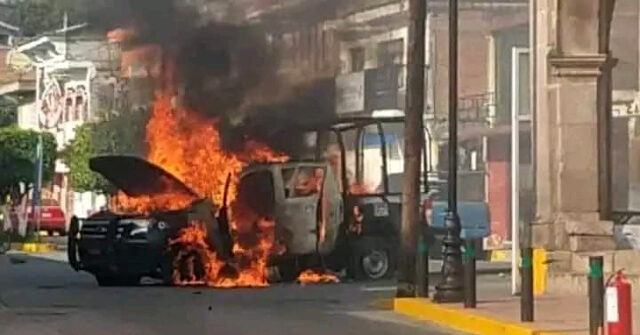In recent months, the rise in violence and terror-style attacks in Mexico has led several European countries to advise their citizens against traveling there. Notably, Great Britain and Switzerland have issued warnings about the potential threat of cartel-related terrorism, highlighting the dangers that can arise from random acts of violence, such as shootings in public spaces and the use of explosives by drug cartels. Reports indicate a worrying trend where innocent individuals often find themselves caught in the crossfire of rival cartel conflicts, leading to tragic consequences for both locals and tourists alike.
European nations like Germany and France have echoed these safety concerns but have chosen not to specifically label the violence as terrorism. Instead, they emphasize the ongoing battles between criminal gangs and law enforcement agencies, which frequently result in collateral damage to unsuspecting bystanders. As highlighted by the news outlet La Silla Rota, visitors to Mexico are being cautioned that the peril stemming from these violent encounters persists, making the country’s landscapes more dangerous than they may appear to foreigners.
The United States has also been vigilant regarding the security situation in Mexico, labeling certain regions with a “Level 4” travel advisory—a designation typically reserved for areas experiencing war or severe instability. This classification illustrates the government’s acknowledgment of the significant risks involved in visiting parts of Mexico, particularly for travelers unfamiliar with the complicated dynamics of cartel activity and their implications on public safety.
Recent violent incidents highlight the severity of the situation in Mexico. For example, in late October, law enforcement in Guanajuato faced coordinated attacks involving car bombs, targeting police forces and government buildings in the area. Following this, two separate incidents in Queretaro and Mexico State involved gunmen attacking local bars, resulting in multiple fatalities and injuries. These attacks indicate a worrying trend of increasingly brazen tactics employed by rival cartels, which not only threaten the safety of local residents but also pose substantial risks to tourists in the vicinity of these violent confrontations.
While the Mexican government has downplayed these acts of violence, arguing that they do not constitute terrorism and suggesting that crime rates are on the decline, this narrative contrasts sharply with the experiences of those directly affected by such violence. The claims made by Mexican officials seem increasingly out of touch with the reality on the ground, given the repeated instances of terror-like assaults and their implications for community safety and stability.
Journalists like Ildefonso Ortiz and Brandon Darby have been at the forefront of reporting these cartel-related incidents, bringing to light the dangerous landscape that has unfolded in parts of Mexico. Their work emphasizes the urgent need for greater governmental transparency and proactive measures to safeguard both citizens and tourists from the rampant violence that has become a hallmark of cartel activity. In the face of these escalating threats, the warnings from Europe and the continued concerns from the U.S. reflect a growing awareness of the need for vigilant travel precautions when considering a visit to Mexico.

